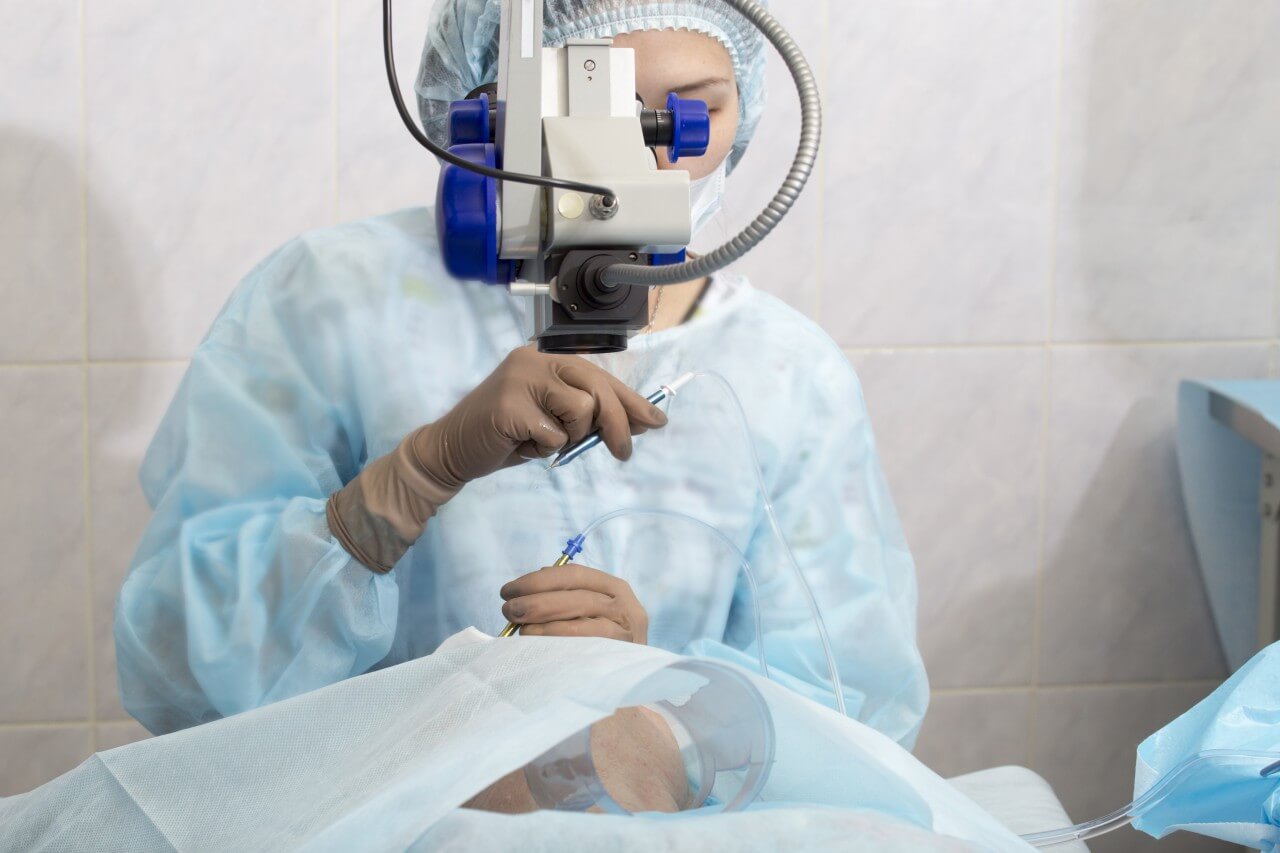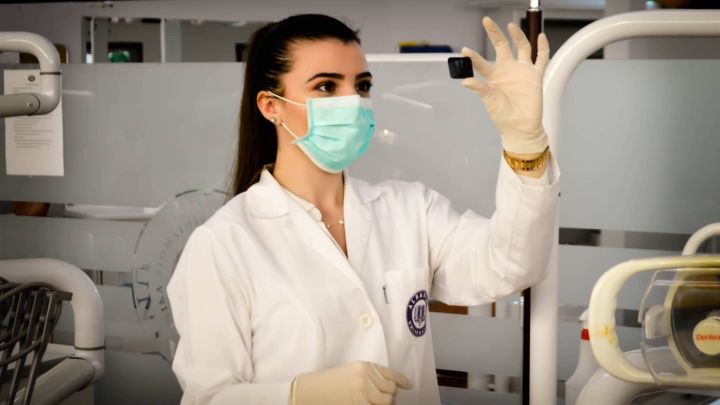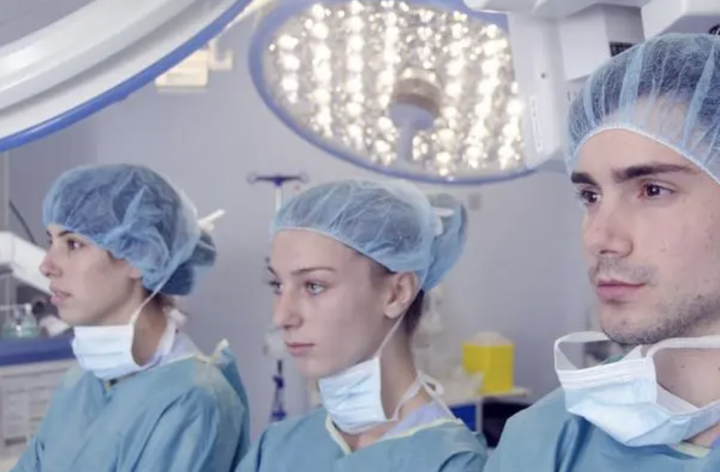Medical
Why excimer laser can treat myopia
With the continuous development of science and technology, a series of new myopia correction operations have emerged in the field of ophthalmology. After surgery, myopia patients can also achieve the vision effect when wearing glasses without wearing glasses. Excimer laser surgery, which has been carried out in the last two decades, has the advantages of high efficiency, accuracy and safety.

With the continuous development of science and technology, a series of new myopia correction operations have emerged in the field of ophthalmology. After surgery, myopia patients can also achieve the vision effect when wearing glasses without wearing glasses. Excimer laser surgery, which has been carried out in the last two decades, has the advantages of high efficiency, accuracy and safety.
What is excimer laser surgery
Excimer laser in situ keratomileusis (LASIK) is a laser ablation in the corneal stroma, which maintains the normal physiological structure of the anterior cornea, has good corneal transparency, and greatly reduces postoperative discomfort. This method can effectively treat myopia, hyperopia, and astigmatism. The treatment range is below 1500 degrees for myopia, below 600 degrees for hyperopia, and below 500 degrees for astigmatism. The greatest characteristics of this operation are fast, painless, quick recovery (usually within 1 to 2 days), and stable postoperative effect.

The technology is quite mature
If the patient is going to choose excimer laser surgery, the most concerned issue must be surgical safety. Ophthalmologists said that the current excimer laser surgery is relatively safe. Compared with the first radial keratotomy of myopia using a diamond knife, its safety has taken a qualitative leap. After many years of clinical practice, it has been fully proved that laser surgery for myopia is relatively mature. But the success rate of any operation cannot be 100%. Of course, good surgical equipment, skilled operation and rich experience of surgeons, as well as good cooperation of patients, are the basis for high safety of surgery. If we choose experienced doctors and treatment centers with strict quality control, we can reduce the possible risks to a very low level.
The key of preoperative examination
A perfect myopia surgery, detailed and systematic preoperative examination of the eye plays a very important role in the selection of surgical patients, the selection of surgical mode, the evaluation of surgical effect and the improvement of surgical safety. "We can use harsh words to describe preoperative examination. Our patients usually go through preliminary examination and reexamination, and about one fifth of patients will be 'eliminated' after examination."
These examinations include naked vision, corrected vision, diopter, slit lamp, intraocular pressure, corneal curvature, corneal thickness, corneal topography and comprehensive fundus examination of mydriasis. The key of these examinations lies in the pursuit of visual quality and long-term eye health rather than the one-sided pursuit of postoperative vision.
Of course, choosing laser refractive surgery should also have some prerequisites, such as the age of 18 to 50 years old; Stable diopter; No other serious eye diseases (such as keratoconus, herpetic keratitis, glaucoma, etc.) and no history of ophthalmic surgery.
The importance of postoperative reexamination
The vast majority of LASIK patients can see clearly on the first day after surgery and can live and work normally. However, due to individual differences and other reasons, a small number of patients have a slightly severe reaction after surgery, and can recover as soon as possible if they strictly follow the doctor's instructions.
Postoperative reexamination is helpful to discover potential problems in time. If the problems found can be handled early, serious consequences can be avoided. Especially in case of eye discomfort or external force, you must go to the hospital for inspection in time. It is generally necessary to follow up 1 day, 7 days, 1 month, 3 months, half a year, 1 year and 2 years after surgery.

Four ways to keep away from hidden dangers
- Pay attention to postoperative care. The postoperative medication and eye hygiene of excimer laser surgery play a key role in reducing postoperative reaction, restoring vision as soon as possible and maintaining visual stability. Therefore, after excimer laser surgery, we should strictly follow the doctor's advice, use drugs on time, use eyes scientifically, and enhance the awareness of eye health care.
- Before deciding to operate, it is necessary to know the medical technology level and surgical facilities of each hospital in detail, and know the qualification of the hospital, such as whether the surgeon has the job qualification, and then choose a large and regular hospital with good reputation and advanced equipment to receive surgery.
- The effect of excimer surgery is highly dependent on doctors' technical level, equipment and even disposable consumables, which also determines the cost of surgery. Therefore, do not think that the cheaper the price, the more cost-effective.
- Don't blindly believe in false advertisements. Excimer surgery is a kind of selective surgery. It has strict requirements on the age, eye condition and physical condition of patients, and not everyone is suitable for it. Therefore, we must patiently cooperate with the doctor for detailed examination before surgery. Once we are told that it is a taboo, we should give up surgery.
-
![]()
![]() MedicalJul 26, 2025
MedicalJul 26, 2025MIT | Use artificial intelligence to improve early breast cancer diagnosis
-
![]()
![]() MedicalJul 25, 2025
MedicalJul 25, 2025New Treatment For Uroepithelial Carcinoma Receives Fda Fast Track Designation With Encouraging Initial Results
-
![]()
![]() MedicalJul 24, 2025
MedicalJul 24, 2025Integrative Oncology: Acupuncture And Acupressure May Relieve Surgical Pain And Anxiety In Cancer Patients
-
![]()
![]() MedicalJul 23, 2025
MedicalJul 23, 2025New Targeted Radiotherapy For "Laser-Like" Precision Treatment Of Refractory Prostate Cancer With Fewer Side Effects!
-
![]()
![]() MedicalJul 22, 2025
MedicalJul 22, 2025Why Is Astrazeneca Willing To Spend a Whopping $12.1 Billion?




